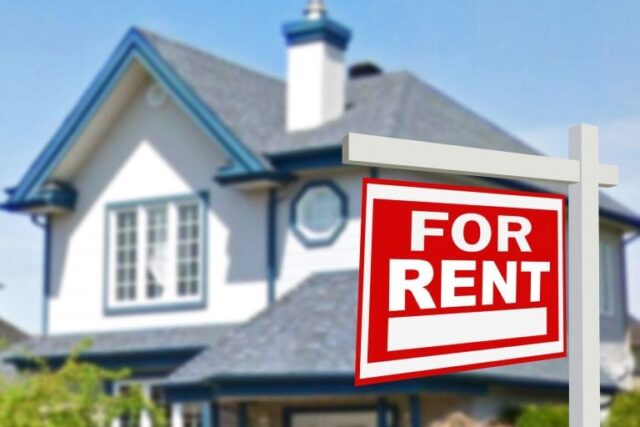
Rental property investment is gaining popularity, offering savvy investors an opportunity to build wealth through consistent and long-term returns. This blog post explores why investing in rental properties can be such an attractive prospect for everyone – from first-time newbies to seasoned pros – with the potential benefits being even greater when businesses throw their hats into the ring!
Get tips on how you could make this lucrative industry part of your financial journey toward success.
Continue reading to learn more about this proven investment method!
What is a rental property investment, and why should you consider it?
Rental property investment is a different investment strategy than a traditional stock or mutual fund portfolio. It involves purchasing a rental property such as a single-family home, condominium complex, or vacation rental and receiving rental payments from tenants regularly.
This type of real estate investing can offer consistent cash flow through the rental fees while providing potential appreciation on the value of the rental property over time.
Your Road to Success with Rental Property Investment
Investment in rental property is a great way to achieve success and passive income if you are willing to put in the time and effort. It depends on research, strategizing, and hard work. With commitment and dedication, you are on your way to your success!
What to look for in a rental property

Looking into competitive rental options in the area will give you a better understanding of the pricing levels that can be offered. Ultimately, rental properties must be well-situated and attractive enough for tenants to make it worthwhile.
Location
When it comes to rental property investment, location is key. You want to choose a location that is in high demand, yet still affordable. A good way to research this is by looking at the vacancy rates in the area.
The lower the vacancy rate, the higher the demand for rentals will be. You also want to choose an area that is growing, as this will help to increase the value of your investment over time.
Market
The next thing you want to look at is the market. You want to make sure that you are choosing a market that is stable and has a consistent demand for rentals. Look at things like job growth, population growth, and median income levels. These factors will give you a good indication of whether or not the market is healthy and growing.
Tenants
Finally, you want to make sure that you are choosing a property that will attract high-quality tenants. Look for things like good schools and amenities in the area. You also want to make sure that the property is in good condition and well-maintained. These factors will help to ensure that you have happy and satisfied tenants who will stay long-term.
How to finance your purchase

Doing market research is essential to determine whether the rental price matches the local median and if any changes need to be done to the rental property.
Look for the Best Deals
When you are looking to finance your purchase, it is important to look for the best deals. There are several ways to do this, including searching online for deals, visiting your local bank or credit union, or even going to a dealership and negotiating a lower interest rate.
Consider Your Options
Once you have found the best deal, you will need to consider your options. There are a few different ways to finance your purchase, including taking out a loan, using a credit card, or borrowing money from a relative. Each option has its benefits and drawbacks, so it is important to choose the one that is right for you.
Make a Plan
Once you have chosen the best option for financing your purchase, it is important to make a plan. This plan should include how much money you will need to borrow, what the interest rate will be, and when you will be able to pay off the loan. By making a plan, you can avoid getting into debt and ensure that you will be able to afford your new property.
This way, you can rest assured that you won’t have a collections firm like Darrell Cook & Associates coming after you.
The importance of due diligence
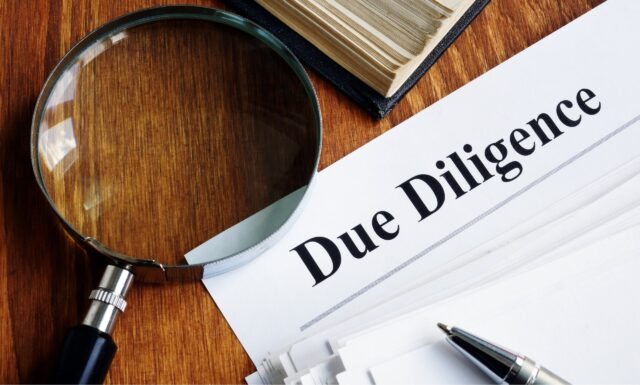
The key to long-term success is due diligence. It’s important to plan out the process methodically and assess all aspects of your investment – from tenants’ credit histories and financial stability to location and surrounding neighborhoods.
Define Your Investment Strategy
The first step in creating a solid business plan for rental property investment is to define your investment strategy. Are you looking to buy and hold properties for the long term, or are you looking to flip properties for a quick profit? Once you have defined your investment strategy, you can begin to create your business plan.
Research the Market
The second step in creating a solid business plan for rental property investment is to research the market. You will need to understand the local real estate market to find properties that fit your investment strategy. Additionally, you will need to research the demographics of the area to determine whether there is a demand for rental properties.
Create a Budget
The third step in creating a solid business plan for rental property investment is to create a budget. You will need to determine how much money you have available to invest, as well as how much you can afford to spend on each property. Additionally, you will need to create a realistic budget for repairs and renovations.
Managing your property investment

To keep your tenants happy and foster positive relationships, regular repairs and maintenance are essential to creating a safe and comfortable living space –– one that promises quality service instead of disappointment. These efforts not only produce customer satisfaction in the short run but enable landlords to build better relationships with their tenants over time.
Through preventive measures such as increased communication, comprehensive inspections, and prompt repairs alike, you can be sure that your tenants’ needs are being met by responding timely and efficiently whenever problems arise. Regular maintenance services can help make life easier for both you and your tenants!
Keep your property in good repair
One of the best ways to keep your tenants happy is to keep your property in good repair. This means fixing any broken appliances, repairing any damage to the walls or floors, and generally keeping the property in good condition. By doing this, you’ll not only make your tenants happy, but you’ll also be more likely to attract new tenants when old ones move out.
Maintain the property
In addition to keeping your property in good repair, you should also make sure to maintain it regularly. This means things like cleaning the gutters, trimming the hedges, and generally keeping the property looking its best. By taking care of your property, you’ll not only make your tenants happy, but you’ll also increase its value over time.
Hire a professional
If you don’t have the time or the knowledge to keep your property in good repair and maintain it regularly, then you should consider hiring a professional. There are plenty of companies out there that specialize in property management, and they can take care of all of the repairs and maintenance for you. While this will cost you money, it will save you time and hassle in the long run.
Tenant selection and screening process

Screening tenants is important because it helps to ensure that you are renting your property to someone responsible and who will take care of the property. Additionally, screening tenants can help to protect your property value by ensuring that only good tenants are living in your property.
How to Screen Tenants
There are a few different ways that you can screen tenants. One way is to require a credit check. This will give you an idea of whether or not the tenant has been responsible for their finances in the past.
Another way to screen tenants is to require references from previous landlords. This will give you an idea of whether or not the tenant has been a good renter in the past. Finally, you can also do a background check on the tenant. This will give you an idea of any criminal history that the tenant may have.
Offer a great rental experience
Offering an exceptional rental experience begins with little details that ensure you and your tenants feel taken care of. From providing the keys on arrival to troubleshooting any issues that come up along the way, making sure everything is taken care of is essential for a good rental experience.
By planning and taking proactive steps, such as educating yourself about tenant rights or developing a plan for maintenance emergencies, you can create a comfortable environment that all parties involved can appreciate. With proper preparation and care are given to both yourself and your renters, it’s easy to provide excellent customer service and offer a great rental experience.
Quickly Respond to Maintenance Requests
One of the most important things you can do to provide a great rental experience to your tenants is to quickly respond to any maintenance requests that they may have. If a tenant has a problem with their plumbing or their heating, you should make sure that someone is sent to their unit as soon as possible to resolve the issue. Additionally, you should keep a list of emergency contact numbers for your tenants in case they have an issue outside of normal business hours.
Be Respectful of Your Tenants’ Privacy
Another important thing to remember when providing a great rental experience is to be respectful of your tenants’ privacy. This means that you should not enter their units without giving them prior notice unless it is an emergency. You should also respect their belongings and not go through their things without their permission.
Keep Common Areas Clean and Well-Maintained
Another way to provide a great rental experience is to keep the common areas of your property clean and well-maintained. This includes the lobby, the hallways, the laundry room, and any other areas that tenants have access to. Keeping these areas clean will create a more pleasant living environment for your tenants and make them more likely to want to renew their leases.
Charge a fair price
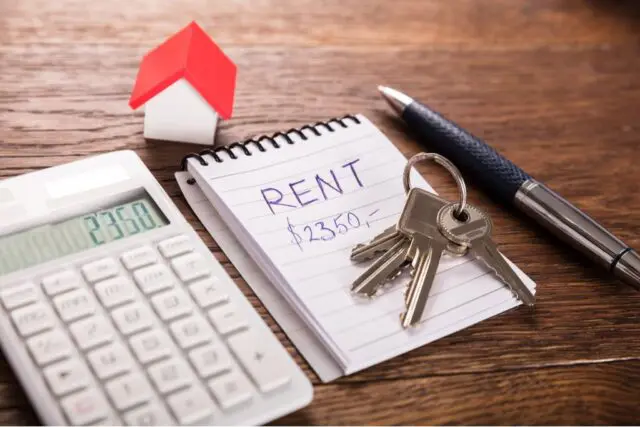
Be competitive with other landlords in your area, but also remember to factor in your costs. Charge a fair price for your rental property by taking into consideration competitive market rates. Consider the geographic location of your property, nearby amenities, and the quality of your unit when determining an appropriate cost.
However, be sure to also factor in your costs including advertising, maintenance fees, and potential renovations to ensure that you don’t end up with a net loss on the property. Charge a fair price and you will have more than enough applicants vying for your rental property.
Know your competition
The first step to charging a fair price is to know your competition. Take some time to research the going rate for rent in your area. Look at listings for similar properties and see what they are charging. This will give you a good idea of what you need to charge to be competitive.
Consider your costs
Once you know what the going rate is, you need to consider your costs. Make sure you are taking into account all of the expenses that go into running your rental property, such as mortgage payments, insurance, taxes, and repairs. You also need to make sure you are making a profit. Once you have all of your costs accounted for, you can start to set your price.
Be flexible
Finally, be flexible with your pricing. If you find that you are not getting any interest at the price you are asking, consider lowering it. Sometimes, even a small price reduction can make a big difference.
Rent collection and late payment remedy
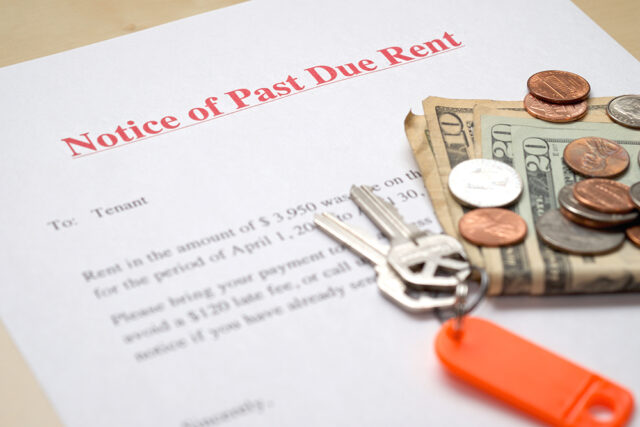
Two of the most important components of successful rental property investment are rent collection and late payment remedies. Investors must establish clear communication with their tenants to ensure rent is collected on time, every month.
It’s a good idea to thoroughly go through the lease agreement with each tenant so that they understand the late payment rules, penalties, and interest for delinquent payments. Developers should also be familiar with local landlord-tenant laws concerning late payments.
Lastly, investors should consider setting up recurring rent payments via automated systems or ACH bank transfers to prevent any confusion around due dates and eliminate the burden of manually tracking down tenants who miss payments. Rent collection and late payment remedies are integral when it comes to rental property investment.
Have a Late Payment Policy
The first step to dealing with late rent payments is to have a late payment policy in place. This policy should state the consequences of late payments, such as a late fee or loss of access to amenities. Having a clear and concise policy will help to deter tenants from paying rent late.
Send a Reminder Notice
If a tenant does not pay rent on time, the next step is to send them a reminder notice. This notice should state the amount of rent that is owed and the date by which it must be paid. The notice should also state the consequences of not paying rent, such as a late fee or eviction.
File an Eviction Notice
If a tenant still does not pay rent after receiving a reminder notice, the next step is to file an eviction notice. This notice will state the amount of rent that is owed and the date by which it must be paid. If the tenant does not pay rent by this date, they will be required to move out of the rental property.
Stay organized

Investing in rental property can be a beneficial form of passive income, but it also requires significant organizational skills. Stay organized to increase efficiency and decrease stress; keep track of payments, leases, tax documents, and other important information associated with your rental property.
Create an organized system that works for you and your tenants, like a binder or online folder where related documents are stored. This way you will know exactly where to look when questions arise or issues need to be addressed. With appropriate planning and organization can come a smooth experience as an investor in rental properties.
Make entries of payments
When you’re renting out a property, it’s important to keep track of all the payments you receive from your tenants. This includes rent payments, security deposit refunds, and any other money that changes hands. Keeping accurate records will help you stay organized and make it easier to file your taxes at the end of the year.
Check leasing agreements
It’s also important to check all the leases you have with your tenants. This includes the start and end date of the lease, as well as any special provisions that are included in the lease agreement. Making accurate records of your leases will help you stay organized and ensure that you comply with the law.
Keep a record of documents
When you’re renting out a property, you’ll also need to keep a record of all the important documents related to the property. This includes the deed to the property, as well as any mortgage or insurance documents. Keeping detailed records of these documents will help you stay organized and ensure that you have everything you need in case of an emergency.
Key Takeaways
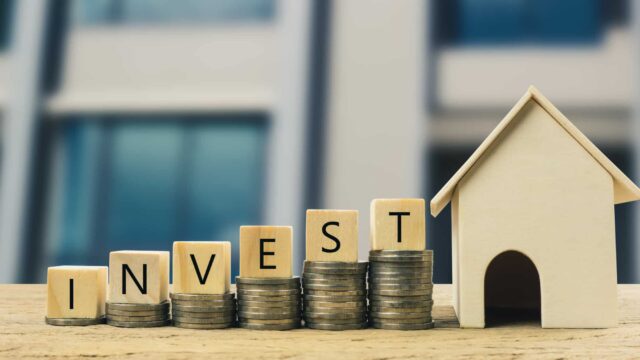
Becoming successful in rental property investment takes determination, strategic decisions, and knowledge of the market. And remember, investing in rental property requires more than just money; it requires an in-depth understanding of how each element fits into a solid business plan so that every aspect is taken into consideration.
Stay up-to-date on market trends, research the local area, and identify potential clients to help get started on your journey to becoming a successful rental property investor. With proper due diligence and preparation, you can ensure that your investment generates positive returns for years down the road.
How about you, what are your tips for success? Share them with us in the comments below.









